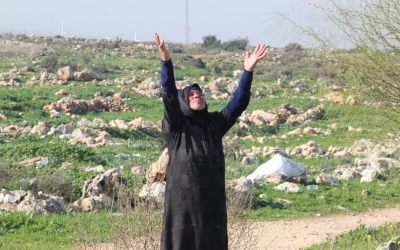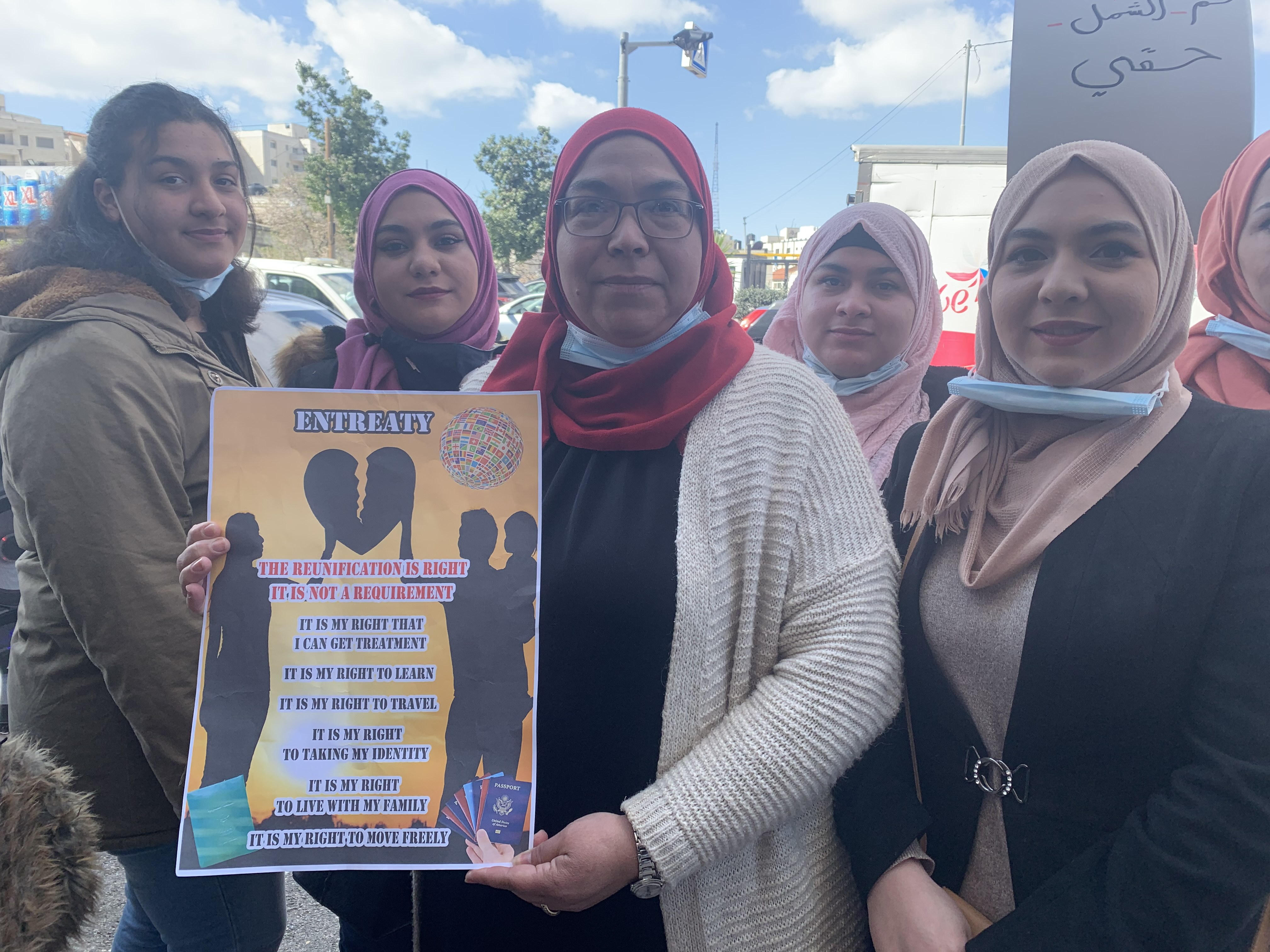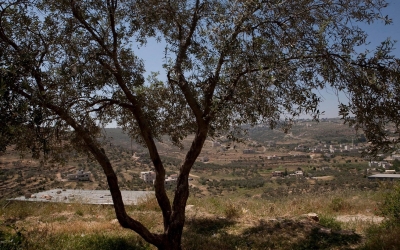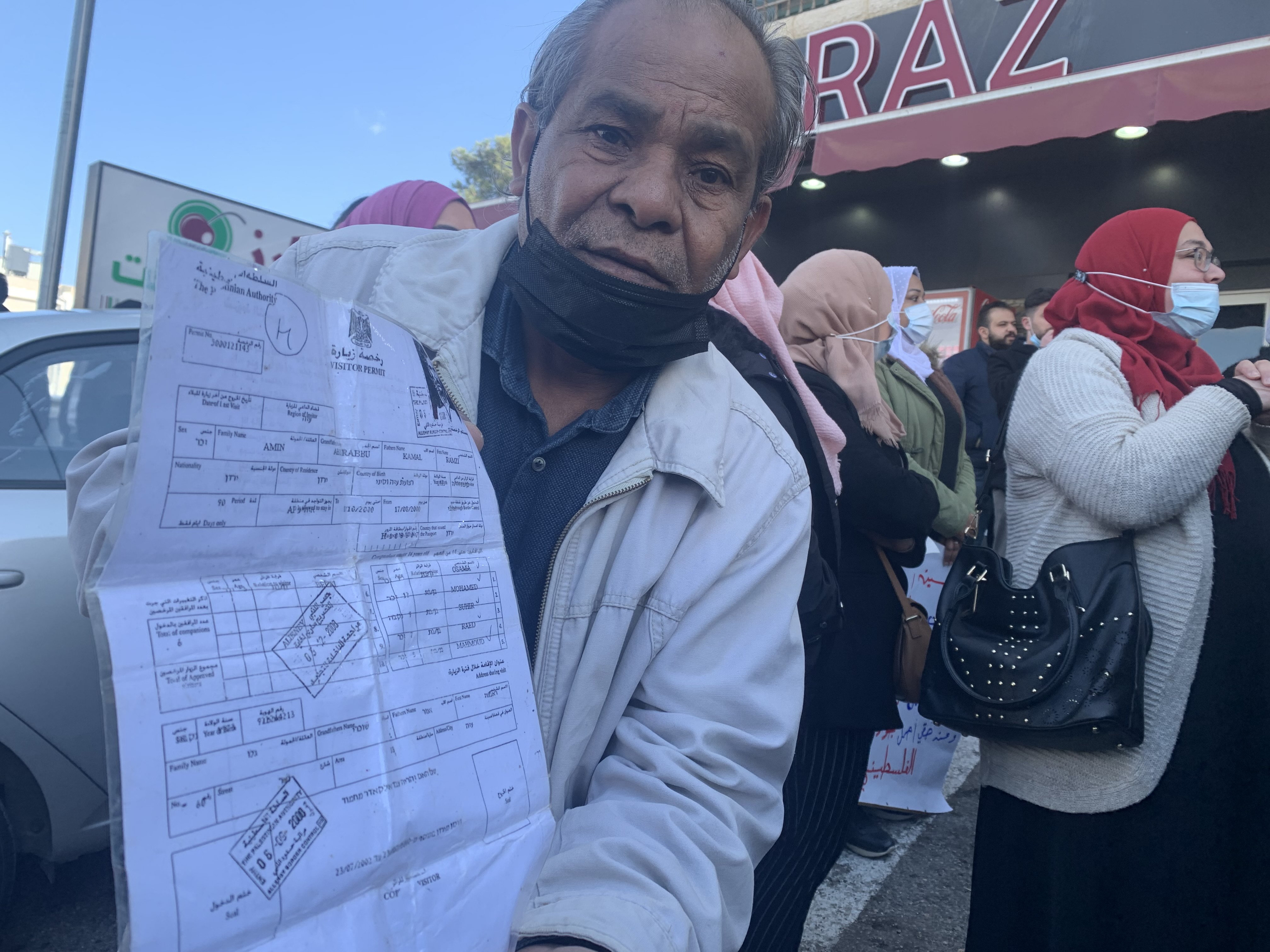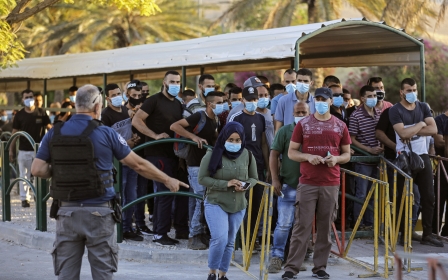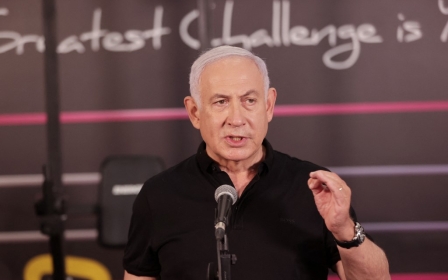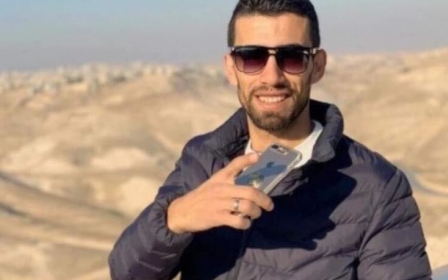Israel: Thousands of unregistered Palestinians fear deportation, separation from families

The fear of being deported constantly haunts 50-year-old Anna Morales. For the 23 years that she has lived in Palestine, the mother of six has been unable to obtain a residency ID.
Anna is an American woman who met and wed her late husband, Mohammad al-Mashni, in the United States.
In 1997, the couple decided to settle down in Palestine, after Anna had received an Israeli permit to enter the country. While her husband at the time did not have a Palestinian ID, he managed to obtain one in 2005, as did their six children.
'I live in constant fear. Fear of being deported, fear of being distanced from my children, fear of having to leave them here on their own'
- Anna Morales
Anna’s application, however, was rejected, and she continues to remain in Palestine illegally, according to Israeli law.
Anna lives with her children in the village of Surda, near Ramallah in the occupied West Bank. Her husband passed away in 2015, leaving her worried about her children and their future.
New MEE newsletter: Jerusalem Dispatch
Sign up to get the latest insights and analysis on Israel-Palestine, alongside Turkey Unpacked and other MEE newsletters
She does not leave the village except on very rare occasions, and she never leaves the Ramallah governorate, for fear of crossing Israeli checkpoints which require identification to pass through.
“I live in constant fear. Fear of being deported, fear of being distanced from my children, fear of having to leave them here on their own,” Anna told Middle East Eye.
Not only is Anna unable to leave Ramallah, but she has also been unable to travel abroad since she arrived.
"My mother passed away without me seeing her and bidding her farewell. My brothers got married and had children, and we have not been together for all these years,” she continued.
Anna said that while it was true that she could move to the US with her children, “we love Palestine and are loyal to it, and we refuse to leave it without being able to return. That is why I am still here today, suffering from being unable to get an ID”.
She received in 2020 a decision from Israeli courts ruling for her deportation, citing her illegal presence in Palestine for 23 years. Anna and her lawyers managed to freeze the deportation order temporarily.
“All Palestinians live in a large prison that Israel constructed. We who do not carry IDs and those that are at risk of deportation live in a double prison,” she said.
Anna is one of the thousands who live in Palestine awaiting ID numbers, which Israel refuses to grant after it froze the process of “family unification” and family visits at the outbreak of the al-Aqsa Intifada, or Second Intifada, in 2000.
Prior to that, Israel granted IDs based on complex procedures that took many years, while refusing many applications, including under security pretexts.
The last batch of IDs it granted was in 2009, while extending the family unification ban in 2020 for another year.
‘We want the ID’
Despite the risks they face for speaking to the media and raising their voices on the issue, a group of women has begun breaking their silence by launching a movement called “Family Reunification is My Right.” They have been active on social media and in organising protests.
In front of the Palestinian General Authority for Civil Affairs in Ramallah, the institution responsible for pushing on this issue and following up with Israeli authorities, activists chanted: “We want the ID, we want the ID.”
The women’s arrival in Ramallah from various areas and towns involved much personal risk.
Nour Hijaji, a 42-year-old woman originally from Tunisia, travelled to the Ramallah protest from her village of Mas-ha near the city of Salfit in the northern West Bank, to call for approval for the family unification request she submitted 13 years ago.
She told MEE that five years after she had applied for family reunification, she travelled to Palestine in 2013 after obtaining a permit valid for one month only.
“The wait was long that I expected that my presence in Palestine would work to move the file along and to get a response, but nothing happened,” she said.
During her time in the West Bank, Nour became a mother to four children, who all have Palestinian IDs. She moves at her own risk and does not leave Mas-ha except for urgent matters, making her unable to take her children out to other areas, whether for family, leisure or other reasons.
She told MEE that her existence left her devoid of many key rights and benefits, the most important of which were health insurance, driving a vehicle or travelling to other areas of Palestine or abroad.
"The biggest obstacle we have is that we cannot move. I have not visited [other cities] such as Bethlehem or Hebron. That has become a dream for me."
She added: "We all came today to Ramallah to deliver our message to officials, in particular those who negotiate with Israel. We are asking why many other issues are being resolved, while the family reunification file is not being raised or talked about.”
Splitting Palestinian families
Israel’s freeze on family reunification affects not only those who moved here with their Palestinian spouses from abroad, but also descendants of Palestinian refugees, Palestinians living in either Gaza or the West Bank who marry each other, and Palestinian Jerusalemites who marry individuals from either of those areas.
Israel’s control over the Palestinian population registry effectively means that it can decide to whom status gets granted in Palestine, who they are allowed to marry and where the couple is allowed to live.
Under the 1993 Oslo Accords, the West Bank and Gaza Strip constitute a single territorial entity whereby residents and families should naturally have the right to move and live between them. However, Israel’s restrictions mean that families split between the two areas can only visit one another in exceptional “humanitarian” cases, and they cannot move or change addresses to either one.
Official figures on the number of pending family unification cases are scarce and difficult to obtain, but are estimated at tens of thousands. According to a joint report by Israeli rights groups, between 2000 and 2006, there were at least 120,000 requests for family unification - which Israel has refused to process, except in a handful of cases.
'Where will my children go if they deport them? Jordan won’t accept them, nor will any other country because they have no other documentation'
- Ramzi Abedrabbo
Imad Qaraqra, public relations officer at the Palestinian General Authority for Civil Affairs, said that it considered the issue of family unification to be one of its top priorities.
"We do not know when Israel can give approval on this file, but we are demanding it as one of our rights,” he told MEE.
He added that between 2007-2009, before Israel completely halted the procedure, the PA was able to obtain approval for approximately 52,000 applications for family unification.
The director of the Centre for Defence of Liberties and Civil Rights, Helmy al-Araj, told MEE that depriving Palestinian families of living together and rejecting their right to citizenship and status was a form of Israeli collective punishment.
He said that this practice constituted a war crime, violating several treaties including the Fourth Geneva Convention, the Universal Declaration of Human Rights and the International Covenant on Economic, Social and Cultural Rights.
Individuals deprived of an ID, he said, live in a state of house arrest and cannot exercise their basic right to movement, in fear of deportation, which is an “infringement on their basic civil rights”.
Al-Araj said that Israel was using this humanitarian issue to pressure and blackmail the PA. For example, he said, after the PA announced the suspension of security coordination with Israel last year, the latter refused to register dozens of newborns, all of whom were banned from leaving the country.
Ramzi Abedrabbo, 57, is a Palestinian refugee originally from Gaza. He met his wife, a Palestinian from the West Bank, in Jordan where he was living. After having six children in Jordan, the family moved to the West Bank in 2000.
Abedrabbo and three of his children obtained IDs in response to the family unification request his wife submitted, while the applications from the other three have been left unanswered, making them vulnerable to deportation at any time.
One of his unregistered children, his daughter, is married and a mother to four children, he said.
Ramzi, who suffers from hemiparesis, attended the protest in Ramallah from the village of al-Ram near Jerusalem. He brought all the documents that prove his legal presence in Palestine that should be passed on to his children.
Speaking to MEE, Ramzi said: “Where will my children go if they deport them? Jordan won’t accept them, nor will any other country because they have no other documentation.”
Middle East Eye delivers independent and unrivalled coverage and analysis of the Middle East, North Africa and beyond. To learn more about republishing this content and the associated fees, please fill out this form. More about MEE can be found here.


